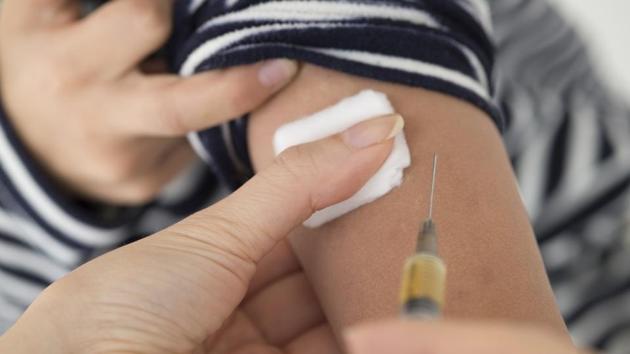Vaccines: An investment in health for a better tomorrow
As the nation readies to act on the government’s commitment to increase immunisation coverage to 90% by 2018, it is important to create greater awareness and elevate the discourse on the value of vaccines in preventing illness, hospitalisation, disability and even loss of life
In my profession, I often see small children suffering from various diseases, being brought in to our diagnostic centre for tests. In the monsoons, particularly, crying, feverish children come in every day to be tested for dengue, chikungunya, influenza, hepatitis, diarrhoea-causing agents and pneumonia. We see a surge in water and vector-borne diseases and diseases caused due to droplet infections. This distresses me, because many of these diseases can be prevented by life-saving technologies. One of the most cost-effective and impactful medical interventions is vaccination. Vaccines have helped the global community successfully eradicate smallpox, a terrible infectious disease that was responsible for millions of deaths and illnesses.

It is heartening to see that India’s universal immunisation programme (UIP) covers free vaccination against 12 life-threatening and debilitating diseases: diphtheria, pertussis, tetanus, polio, tuberculosis, measles, rubella, hepatitis B, rotavirus diarrhoea, Japanese encephalitis, and diseases caused by Haemophilus influenzae type b (Hib) and Streptococcus pneumoniae (pneumococcus). The pneumococcal conjugate vaccine (PCV) has just been introduced in three states in India, and the measles-rubella vaccine will soon be introduced in several states, protecting crores of children. With the aim to save more lives every day, scientists have developed a vaccine that provides protection against the leading cause of cervical cancer and are working on vaccines to combat dengue and malaria.
The government has been encouraging innovations and the recently announced an ‘innovate in India’ mission that will provide an impetus to develop new vaccines and other technologies, and help improve the quality and efficacy of vaccines. Further, the government has adopted electronic vaccine intelligence network (eVIN) to address gaps related to cold-chain management. This smartphone application has digitised vaccine inventories and record-keeping at nearly 10,500 vaccine stores and cold chain points across 12 states.
Despite such initiatives, Indian children are still dying from vaccine-preventable diseases. Unfortunately, vaccines do not reach every child, and among the reasons for this are myths and lack of understanding of their benefits. Recently, during the government’s school-based MR vaccine campaign, factually incorrect messages were circulated on social media, questioning the efficacy, safety, and need for the vaccine. These messages inflamed parents’ concerns, making many hesitant to vaccinate their children.
Vaccine hesitancy is a complex issue, motivated by different factors. As health professionals, we need to ensure parents understand that vaccines included in the UIP are safe and effective. Their safety and efficacy have been demonstrated through well-conducted and rigorous tests and studies and consistent scientific observations from their routine use around the world. I know this as I collaborated with other researchers in a trial evaluating the effectiveness of a new vaccine that protects children from a common cause of diarrhoea. Vaccines protect children against prolonged illness, thereby preventing high medical bills and reducing the financial burden on a family.
If immunisation coverage drops, diseases that almost disappeared in many places may resurface. This was recently seen in the surge of measles cases in various European countries which were progressing towards elimination. It is unacceptable that children are dying of diseases for which we have the tools to prevent. I believe politicians and public figures should take the lead in ensuring the benefits of this life-saving, cost-effective intervention reach all. Health is a key issue in election agendas in several developed nations—and I feel India should do so too. It will help bring these serious health issues to the forefront and work to develop community support for immunisation. Political commitment towards health, especially preventive health, is crucial to improve access to vaccines.
As the nation readies to act on the government’s commitment to increase immunisation coverage to 90% by 2018, it is important to create greater awareness and elevate the discourse on the value of vaccines in preventing illness, hospitalisation, disability and even loss of life.
Navin Dang is a specialist in Microbiology and Director of Dr. Dang’s Lab Pvt. Ltd., New Delhi.
The views expressed are personal





